School of Information Technology
Bachelor of Business Information Systems
OR
DOWNLOAD AN APPLICATION FORM
Qualification / Course Information
Minimum Duration:
3 Years
Minimum Credits:
390
NQF Level:
7
SAQA:
119542
MODE:
Distance Learning
CAMPUS:
Distance Learning
LANGUAGE:
English
QUALIFICATION OVERVIEW
An effective information system (IS) must be designed, developed and implemented in such a way as to support the strategic goals of the organisation within which it will be used, while at the same time providing security, maintainability and ease of use. The Bachelor of Business Information Systems programme is designed to equip graduates with the skills necessary to function as a (junior) business analyst, software developer or tester, database manager, or IT risk manager. During the programme students will be expected to apply analytical and logical thinking skills in order to identify and analyse business problems, document business processes, develop creative solutions, manage data and information, and communicate effectively with team members and project stakeholders. They will also gain limited experience in the fields of project management, database management, risk management and network security. A research project accompanied by a related practical systems development project will be undertaken in the final year of the programme, providing students with valuable real-world experience. Throughout the programme, attention will be drawn to legal and ethical issues related to the societal impact of computer technologies.
Entry Requirements
THE ADMISSION CRITERIA FOR THE BACHELOR OF BUSINESS INFORMATION SYSTEMS ARE:
-
National Senior Certificate (NSC) with degree endorsement with a minimum of 50% in four 20-credit subjects from the designated list, and a minimum of 40% in either English Home Language or English First Additional Language; and a minimum of at least 50% for either Mathematics or Information Technology, or a minimum of at least 70% for either Mathematical Literacy or Computer Applications Technology; OR
-
a Senior Certificate (SC) with degree endorsement and a minimum of 40% in either English First Language (HG) or English Second Language (HG); and a minimum of at least 50% for either Mathematics (HG) or Computer Studies (HG), or a minimum of at least 70% for either Mathematics (SG) or Computer Studies (SG); OR
-
a Higher Certificate (NQF 5) in Software Development, or an equivalent qualification.
Applicants who do not meet the admission requirement for Mathematics, Maths Literacy, IT, or CAT will be conditionally admitted and must pass Induction to Business Studies (IBS152) in their first semester.
To find out more about alternate access routes at STADIO, please click HERE
QUALIFICATION OUTCOMES
The qualifying student will be able to:
-
Gather, evaluate and validate information obtained from project stakeholders, in order to determine organisational needs and/or the factors contributing to current problems, so that the organisational context and the project goals can be accurately defined.
-
Conduct research into similar existing systems, to identify factors that are likely to have either a positive or a negative impact on project success.
-
Integrate knowledge of information systems with relevant elements from the fields of management, accounting, law and statistics, in order to analyse a business, identify stakeholder requirements, create a detailed technical specification, and develop and implement an appropriate solution.
-
Manage a systems development project involving multiple stakeholders and project team members, from inception through to the post-implementation review.
-
Demonstrate a variety of communication and documentation skills ranging from individual stakeholder interviews to formal meetings and review sessions, to highly technical specification documents for the system that is to be developed and implemented.
-
Demonstrate accountability for decisions made during the systems development and implementation process and be able to justify the ethical values that underpin them.
-
Apply secure computing principles and techniques to identify and assess potential risks affecting the security of networks, information assets and data communications.
-
Analyse business and operational data to monitor the performance of the system and proactively provide the organisation with insight into potential business problems and/or opportunities.
QUALIFICATION CURRICULUM
1st YEAR MODULES
-
Accounting 1
-
Computational Thinking and Introduction to Programming
-
Fundamentals of Information Technology
-
Induction to Business Studies
-
Information Security for IS Practitioners
-
Introduction to Business Management
-
Introduction to Databases
-
Object-Oriented Programming
-
Software Engineering
-
Technology and Society
2nd YEAR MODULES
-
Business Law and Compliance
-
Data and Decision-making
- Introduction to Business Analysis and Technical Communication
-
Information Systems Project Management
-
Object-Oriented Analysis
-
Object-Oriented Design
-
Statistics
-
Web Systems and Technologies
3rd YEAR MODULES
-
Business Process and Technology Integration
-
Electronic Commerce and Technology Startups
-
Human-Centric Design and Business Intelligence
-
Information Systems Development Project
-
Introduction to Research
-
IT Governance, Risk and Continuity
WHAT TO STUDY NEXT
FURTHER STUDY OPPORTUNITIES:
Students who have completed credits at another higher education institution may apply for the transfer of those credits in line with STADIO’s CAT Policy. The recognition of credits for the purpose of transfer from one qualification to another is determined by the nature of the qualifications, the relationship between them, the nature, complexity, and extent of the curricula associated with the specific subjects to be recognised for credit and the nature of the assessment used. A maximum of 50% of credits of a completed qualification may be transferred via CAT, while all credits from an incomplete qualification may be transferred, provided that no more than 50% of the credits on the receiving qualification are awarded via CAT.at NQF level 8 (third year) or an Honours degree in Humanities at NQF level 8.
CAREER OPPORTUNITIES
Below are some key career opportunities that you may consider once you have completed this qualification:
-
Business Analyst
-
Database Administrator
-
Data Scientist
-
Software Developer
-
Software Team Leader
-
Systems Analyst
-
Web Developer
